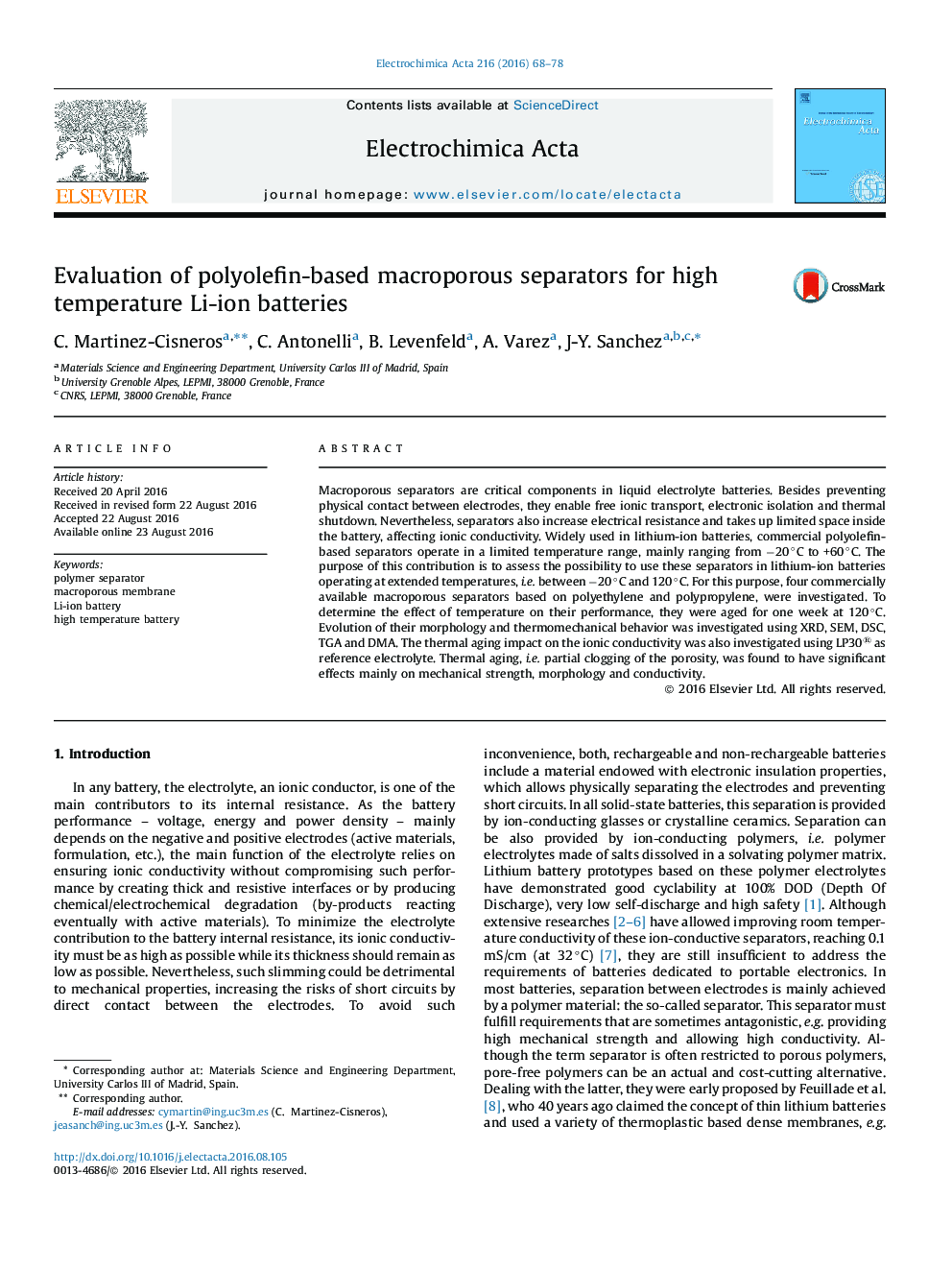| Article ID | Journal | Published Year | Pages | File Type |
|---|---|---|---|---|
| 4767754 | Electrochimica Acta | 2016 | 11 Pages |
Abstract
Macroporous separators are critical components in liquid electrolyte batteries. Besides preventing physical contact between electrodes, they enable free ionic transport, electronic isolation and thermal shutdown. Nevertheless, separators also increase electrical resistance and takes up limited space inside the battery, affecting ionic conductivity. Widely used in lithium-ion batteries, commercial polyolefin-based separators operate in a limited temperature range, mainly ranging from â20 °C to +60 °C. The purpose of this contribution is to assess the possibility to use these separators in lithium-ion batteries operating at extended temperatures, i.e. between â20 °C and 120 °C. For this purpose, four commercially available macroporous separators based on polyethylene and polypropylene, were investigated. To determine the effect of temperature on their performance, they were aged for one week at 120 °C. Evolution of their morphology and thermomechanical behavior was investigated using XRD, SEM, DSC, TGA and DMA. The thermal aging impact on the ionic conductivity was also investigated using LP30® as reference electrolyte. Thermal aging, i.e. partial clogging of the porosity, was found to have significant effects mainly on mechanical strength, morphology and conductivity.
Related Topics
Physical Sciences and Engineering
Chemical Engineering
Chemical Engineering (General)
Authors
C. Martinez-Cisneros, C. Antonelli, B. Levenfeld, A. Varez, J-Y. Sanchez,
